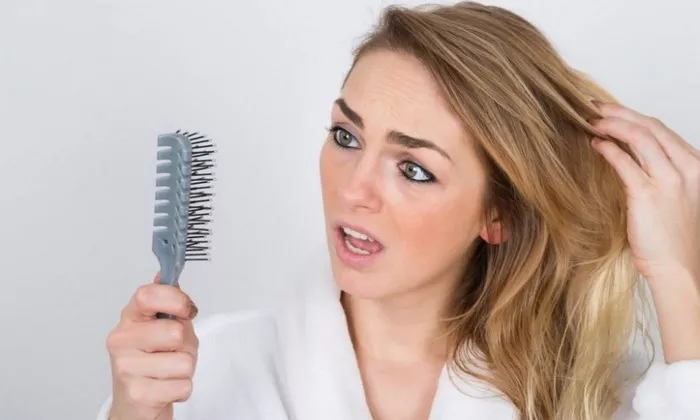Hair loss is a common concern for many individuals, impacting both men and women of all ages. While there are various factors that contribute to hair loss, one often overlooked aspect is stress. The connection between stress and hair loss has been a topic of interest for researchers and medical professionals alike. In this article, we will explore why stress can lead to hair fall out, the mechanisms behind this phenomenon, and potential strategies for managing stress-induced hair loss.
The Physiology of Hair Growth
Before delving into the relationship between stress and hair loss, it is essential to understand the basics of hair growth. Hair follicles undergo a continuous cycle of growth, rest, and shedding. This cycle, known as the hair growth cycle, consists of three phases:
1. Anagen phase: This is the active phase of hair growth, during which the hair follicle produces new hair. The length of the anagen phase determines the length of the hair.
2. Catagen phase: In this transitional phase, the hair follicle shrinks and detaches from the dermal papilla, signaling the end of active growth.
3. Telogen phase: Also known as the resting phase, hair remains in the follicle but is no longer growing. Eventually, the hair is shed, and the cycle begins anew.
Various factors, including genetics, hormones, and environmental influences, regulate the hair growth cycle. Disruption of this cycle can lead to hair loss, known medically as alopecia.
The Stress-Hair Loss Connection
Stress is a natural response to challenging or threatening situations, triggering a cascade of physiological changes in the body. While acute stress is a temporary reaction that typically resolves once the stressor is removed, chronic stress can have profound effects on overall health, including hair loss.
Research suggests that chronic stress can disrupt the delicate balance of the hair growth cycle, leading to increased shedding and thinning of the hair. Several mechanisms may explain the link between stress and hair loss:
1. Hormonal Imbalance: Stress activates the body’s “fight or flight” response, leading to the release of stress hormones such as cortisol and adrenaline. Prolonged stress can dysregulate hormone levels, including those involved in hair growth, such as cortisol and testosterone. Elevated levels of cortisol, in particular, have been associated with hair thinning and shedding.
2. Inflammation: Chronic stress can trigger low-grade inflammation throughout the body, including the scalp. Inflammation disrupts the hair follicle’s normal functioning, hindering the growth phase and accelerating the shedding phase.
3. Impaired Blood Circulation: Stress constricts blood vessels and reduces blood flow to peripheral tissues, including the scalp. Inadequate blood supply deprives hair follicles of essential nutrients and oxygen, impairing their ability to produce healthy hair.
4. Disruption of Hair Growth Cycle: The hair growth cycle is highly sensitive to changes in the body’s internal environment. Stress-induced hormonal fluctuations and inflammatory responses can disrupt the normal progression of the hair growth cycle, leading to premature entry into the shedding phase.
5. Trichotillomania: In some cases, stress can manifest as compulsive behaviors such as hair pulling (trichotillomania), leading to physical damage to the hair follicles and subsequent hair loss.
Managing Stress-Induced Hair Loss
While it may not be possible to eliminate stress entirely from our lives, there are various strategies to mitigate its impact on hair health:
1. Stress Management Techniques: Incorporate stress-reducing practices such as mindfulness meditation, deep breathing exercises, yoga, or tai chi into your daily routine. These techniques can help calm the mind and body, reducing the physiological effects of stress.
2. Regular Exercise: Engage in regular physical activity to release endorphins, the body’s natural stress relievers. Exercise also improves blood circulation, delivering essential nutrients to the scalp and promoting hair growth.
3. Healthy Lifestyle Habits: Prioritize a balanced diet rich in vitamins, minerals, and antioxidants to support overall health, including hair growth. Adequate hydration, sufficient sleep, and limiting alcohol and caffeine intake can also help manage stress levels and promote hair health.
4. Seek Support: Don’t hesitate to reach out to friends, family, or a mental health professional for support during stressful times. Talking about your feelings and experiences can provide emotional relief and perspective.
5. Professional Treatment Options: In cases of severe or persistent hair loss, consult a dermatologist or healthcare provider for personalized treatment options. These may include topical medications, oral supplements, or procedures such as platelet-rich plasma (PRP) therapy or low-level laser therapy (LLLT) to stimulate hair regrowth.
Conclusion
While the relationship between stress and hair loss is complex, understanding the underlying mechanisms can empower individuals to take proactive steps in managing their hair health. By adopting stress-reducing strategies and prioritizing self-care, it is possible to mitigate the impact of stress on hair follicles and promote healthy hair growth. Remember, addressing stress not only benefits your hair but also contributes to overall well-being and quality of life.


